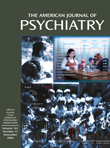Clinical Outcome of ECT in Patients With Major Depression and Comorbid Borderline Personality Disorder
Abstract
OBJECTIVE: Previous research suggests that the comorbidity of major depression with a personality disorder, especially borderline personality disorder, is associated with a poorer response to ECT. The authors compared the acute outcome of ECT in depressed patients with borderline personality disorder, with personality disorders other than borderline personality disorder, and with no personality disorder. METHOD: The study subjects were 139 patients with a primary diagnosis of unipolar major depression and scores of at least 20 on the 24-item Hamilton Depression Rating Scale. Patients were treated with suprathreshold right unilateral or bilateral ECT in a standardized manner and were assessed with the Hamilton depression scale within 3 days and 4–8 days after completing ECT. RESULTS: Compared to patients with personality disorders other than borderline personality disorder (N=42) and those with no personality disorder (N=77), patients with borderline personality disorder (N=20) had less symptomatic improvement assessed up to 8 days after ECT. Patients with personality disorders other than borderline personality disorder responded as well to ECT as those with no personality disorder. Borderline personality disorder patients were more likely to be female and to have medication-resistant depression than the patients in the two comparison groups; they were also younger. However, none of these differences accounted for the borderline personality disorder patients’ poorer response to ECT. CONCLUSIONS: Patients with borderline personality disorder have a poorer acute response to ECT, but explanations for this finding remain elusive.



